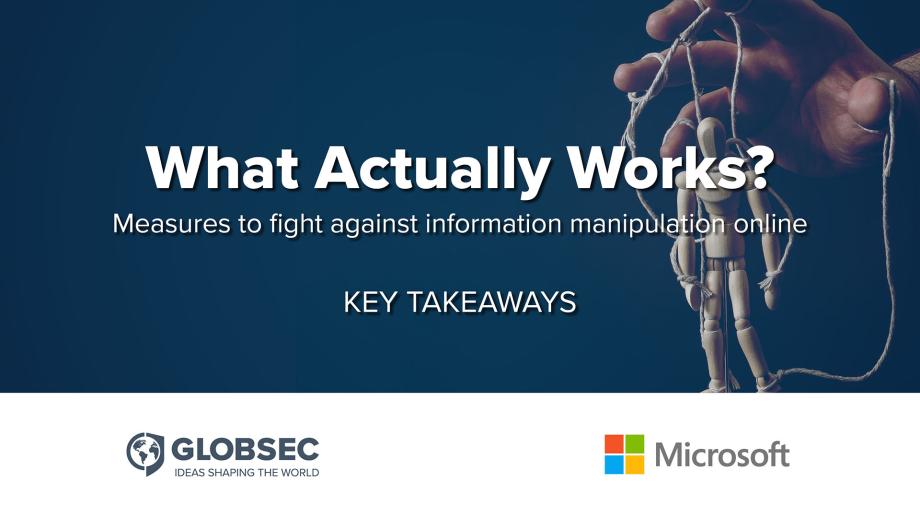What actually works? Measures to fight against information manipulation in the online information space. Key Takeaways

The COVID-19 pandemic has revealed how vulnerable societies around the world are to information manipulation and how dangerous can the effects of this manipulation be. At the same time, however, the urgency of this unprecedented crisis accelerated the search for solutions to the ills of the global information space. Both the private and public sectors, as well as civil society actors, began testing and implementing measures that would help societies overcome the challenge of the century. While there is clearly no “silver bullet” solution to limit the spread and impact of manipulative content on society, some measures have proven more effective than others. So, what are these measures? How do we know what actually works? And what can the private, the public, and the civic sector do individually and as a team?
To discuss these questions, GLOBSEC has organized an online webinar, in collaboration with Microsoft, with representatives of the public, private as well as civic sectors who offered their perspectives on the topic.
Cornelia Kutterer, Senior Director, Rule of Law, Responsible Tech & Competition Team at Microsoft Europe first introduced the tools used by the company to counter the spread of disinformation during the pandemic. Besides Microsoft's innovative technology for deep fake recognition, she also spoke about the measures employed by the company's platform LinkedIn which has since the beginning of the pandemic referred its users to reliable information sources on COVID-19.
Ruurd Oosterwoud, Founder of DROG then explained how games and education can be used to fight disinformation, opened the topic of financing of disinformation, and emphasized the need to explore the “disinfonomic” – the business models behind the disinformation in order to find suitable counter-measures. He also accentuated the need for cooperation of public, private, and civil society actors in creating regulation of online media that will work properly and to benefit society.
Henry Collis, Deputy Director at the National Security Communications within the Cabinet Office and Prime Minister’s Office Communications, UK, as a representative of the public sector concluded the session with a presentation of the British strategy for countering disinformation adapted to the current pandemic situation and its unique challenges. Some of the crucial lessons learned are that we need to focus not only on the actors spreading disinformation but also on their audience and that strategic communication, although critically important, needs to be accompanied by effective regulation of the online media.
Key practical steps to counter disinformation:
1) contingency planning
2) impact measurement
3) whole-of-government approach
4) tailor-made campaigns instead of a single-fit approach
